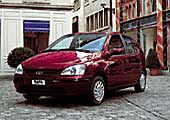 |
| TCS's Ramadorai:
Sitting smug |
So the initial
public offering (IPO) of Tata Consultancy Services (TCS) did after
all get the kind of response a software services pioneer deserves.
After all, compared to the offer size of Rs 5,420 crore (at the
issue price), the total demand generated was for over Rs 40,000
crore. The over-subscription figure, on an overall basis, is a noteworthy
7.7 times. One redeeming factor about the TCS IPO is that unlike
many other previous offerings, the bids were spread evenly. This
is because, rather than blindly bidding at the highest price (Rs
900 in TCS' case), investors did attempt to value the company, and
price it accordingly. "Book-building in its real sense happened
here and that shows the maturing of the Indian IPO market,"
says Nimish Shah, Director, Parag Parikh Financial Advisory Services.
The TCS top brass for its part also did its bit to bring alive the
spirit of book-building. Though the issue was oversubscribed by
2.2 times at the highest price band, the company has decided to
price it only at Rs 850, leaving more room for appreciation for
investors. "We priced it lower to make it more attractive to
the long-term investors," explains Ratan Tata, Chairman of
TCS. That won't stop some of them from dumping the stock on listing
day.
-Narendra Nathan
Indica's
New Platform
Expect it by 2007. Don't expect it to
look anything like today's Indica.
 |
| Tata Indica:
Making way for the new |
Some time in 2007,
there'll be a new Indica on the road. at the Engineering Research
Centre in Tata Motors' sprawling 1,200 truck and car plant, a group
of engineers has already begun work on a new platform that will
eventually become the second generation Indica. According to one
senior executive, the brief given to the engineers is that the new
car "doesn't necessarily have to be like the Indica",
and it could well be a totally different looking vehicles that's
ultimately manufactured at K block, Tata Motors' car making facilities.
"The Indica (launched in December 1998) is now close to five
years old. Like most cars, it will have a life of eight years. But
by 2007, we will need a new car," says J.M. Thatte, Vice President
(Car Plant-Pune), Passenger Car Division, who retired last fortnight.
Thatte, however, will still be involved with
Tata Motors and the Indica as a consultant. "Our learnings
with the Indica have to be transferred. The new car doesn't need
to go through the same teething problems like the first one."
Meantime, the capacity of the Indica is being
aggressively ramped up by 50 per cent to 750 cars a day. Some 150
of these will be the Marina station wagon. Between now and 2007,
Tata Motors executives expect to launch at least two more variants
of the Indica, perhaps the first one just before April 1, 2005,
when the Euro III norms come into play. Another car with a Euro
IV compliant engine (both petrol and diesel) will be ready by 2006.
-Brian Carvalho
Act
And Amend
The proposed amendment to the Companies Act,
1956, is a step in the right direction.
| THE PROPOSED CHANGES |
» Bring
down the sections of the Companies Actfrom 781 to 289
» Mandatory
appointment of chief accounts officer
» All companies
should have 50 per cent independent directors
» Doing
away with subsidiaries of subsidiaries, except those incorporated
outside India.
» Auditors
will be prohibited from doing non-audit services |
Surely
it makes eminent business sense to reduce the number of sections
in an Act, from 781 to 289 as in this case. As does bringing down
compliance costs, reducing the workload on the registrar of companies,
imposing stringent norms at the time of incorporation to deter companies
from doing the vanishing act, having a special audit to prevent
insider trading, allowing foreign companies to register outside
Delhi, and doing away with redundant provisions. The Act in question:
The Companies Act, 1956.
The Concept Paper on Amendment to the Companies
Act, 1956, to be sure, seeks to achieve much, much more. Moreover,
it has also proposed amendments on the issue of securities, capital
and public deposits, dividends, investor education and also simpler
ways of winding up loss-making companies. However, a few irritants
tend to blemish the rosy picture. The draft proposals' insistence
on having 50 per cent independent directors on every company's board,
for instance. "It can create supply side problems, given the
huge number of companies and the rather limited number of independent
directors,'' says an expert.
On the flip side, though, there are irritants:
Like a proposal to impose a cess of anywhere between 0.005 per cent
and 0.1 per cent in the annual turnover of every company for rehabilitation
of sick companies. Thank heavens it's only a concept paper!
-Ashish Gupta
WORKOUT
In-House Gym
 |
| Company gym:
A social exercise |
Financial
muscle may soon mean more than just strapping numbers on the balance
sheet, if the world's largest gym chain, Gold's Gym has its way.
Having already set up a "corporate" gym for Reliance Infocomm,
representatives of the chain are now actively scouting for more
clients. Globally the chain has set up gyms for cp, Dell and Microsoft,
amongst others. In India, G. Ramachandran, Director, Gold's Gym,
sees great potential in Bangalore, Chennai and Hyderabad. ''In Mumbai,
the biggest constraint is space. For Delhi-ITEs being seen is extremely
important; that's why they wouldn't want to use a company gym.''
And all this time you thought gymming was about working out.
-Priyanka Sangani
AIRLINE
Castle In The Sky?
 |
| UB's Mallya:
Fly like a king |
It's
not called "fresh air" for nothing. India's first ''funliner''-when
it takes off-will have air hostesses chosen from a national model
hunt, designer interiors, in-flight shopping, multi-channel entertainment
and a brand that exults you to ''fly the good times''. Inspired
by UB Group's bestselling guzzler-which of course will be served
up if Mallya gets the go-ahead-Kingfisher Airlines has inked a deal
with Airbus for 12 spanking new A-320s with a list price of $750
million. ''The aircraft and service will reflect the Kingfisher
lifestyle imagery,'' says UB Group Chairman Vijay Mallya. Brand
ambassador Katrina Kaif will attempt to woo the young and upwardly
mobile flocking. Predictably, operational details are sketchy. Fares
on Kingfisher Air, while lower than regular airlines, will be at
a premium to ''low-cost'' carriers.
-Abir Pal
|
